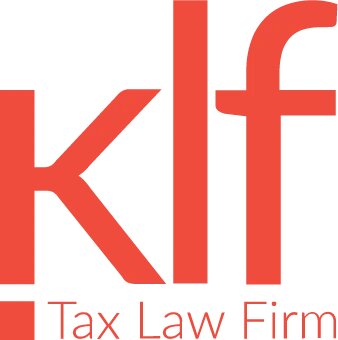Best Transportation Lawyers in Jerusalem
Share your needs with us, get contacted by law firms.
Free. Takes 2 min.
List of the best lawyers in Jerusalem, Israel
About Transportation Law in Jerusalem, Israel
Transportation in Jerusalem, Israel is an intricate web of roadway systems, public transit services, and regulatory frameworks. The city is a major cultural and administrative hub, which makes the efficient movement of people and goods paramount. The transportation law in Jerusalem governs various aspects, including vehicle registration, traffic regulations, public transportation systems, and road safety standards. Authorities like the Ministry of Transport and Road Safety oversee the implementation and enforcement of these laws, ensuring that transportation is safe, efficient, and aligns with national policies.
Why You May Need a Lawyer
There are several scenarios where individuals or businesses might require legal assistance in the field of transportation in Jerusalem:
- Traffic Violations: Dealing with fines or disputes over traffic tickets.
- Accidents: Legal issues arising from road accidents, including personal injury claims and damage disputes.
- Licensing Issues: Assistance with vehicle registration, licensing requirements, or renewal processes.
- Commercial Transportation: Compliance with regulations for commercial vehicles, transit services, or freight companies.
- Insurance Claims: Navigating the process of filing or disputing insurance claims related to transportation incidents.
Local Laws Overview
A few key aspects of the local laws relating to transportation in Jerusalem include:
- Traffic Regulations: These cover speed limits, traffic signal adherence, and other rules of the road.
- Public Transportation Rules: Governance of buses, the Light Rail, and other public transit modes, focusing on safety, scheduling, and fare collection.
- Vehicle Specifications: Laws related to vehicle standards, emissions, and safety requirements.
- Driver Requirements: Licensing, age restrictions, and medical fitness of drivers.
- Enforcement and Penalties: Details on fines, imprisonment, or other penalties for violations of transportation laws.
Frequently Asked Questions
What should I do if I receive a traffic ticket in Jerusalem?
If you receive a traffic ticket, you can either pay the fine or contest it in court. Consulting a lawyer can help you understand the grounds for contesting the ticket and the process involved.
How are traffic accidents handled legally in Jerusalem?
Traffic accidents are handled by reporting to the police, getting insurance details, and possibly going to court for any disputes regarding damages or injuries. Legal counsel can help you navigate these steps.
What are the consequences of driving without a valid license in Jerusalem?
Driving without a valid license can result in fines, disqualification from holding a license, and even imprisonment. Legal advice can help mitigate these consequences.
Can I handle a transportation-related legal issue on my own?
While it's possible to handle some minor issues on your own, the complexities of transportation law often make professional legal assistance advisable, especially for serious matters like accidents or commercial disputes.
What are the regulations for commercial transportation in Jerusalem?
Commercial transportation is governed by specific standards and regulations concerning vehicle maintenance, driver qualifications, and operational permits. Compliance with these laws is crucial, and legal advice can ensure adherence.
How can I dispute an insurance claim denial related to a transportation incident?
Disputing an insurance claim denial involves gathering evidence, understanding the insurance policy, and potentially negotiating with the insurer or going to court. A lawyer can significantly aid in this process.
Are there specific laws for public transportation users and operators?
Yes, public transportation in Jerusalem is regulated to ensure safety, reliability, and fairness in operations. Laws cover everything from vehicle standards to fare collection and passenger conduct.
What happens if I’m found guilty of a transportation law violation in court?
The penalties can vary widely but may include fines, community service, license points, or even jail time depending on the offense. Legal representation can help in reducing or contesting these penalties.
How can I challenge a traffic fine or penalty?
You can challenge a fine or penalty by submitting a formal contest with the relevant authorities or through a court hearing. A lawyer can help prepare your case and represent you in proceedings.
What should I do if I encounter unsafe road conditions in Jerusalem?
Unsafe road conditions should be reported to local authorities or the municipality to prompt repairs or improvements. If an accident results due to such conditions, legal recourse may be available.
Additional Resources
For those seeking more information or immediate help, the following resources can be valuable:
- Ministry of Transport and Road Safety: Provides up-to-date information and services related to all transportation issues.
- Jerusalem Municipality: Offers local information and support for transportation matters within the city.
- Israel Police Traffic Division: Handles traffic enforcement, accident reports, and safety initiatives.
- Insurance Companies: For guidance on claims related to transportation incidents.
Next Steps
If you require legal assistance in transportation matters in Jerusalem, you should take the following steps:
- Identify the Issue: Clearly understand the legal matter you are dealing with.
- Gather Documentation: Collect all relevant documents, tickets, accident reports, or correspondence.
- Consult a Lawyer: Seek professional legal advice to understand your rights and options. Make sure to choose a lawyer specializing in transportation law.
- Follow Legal Advice: Act according to the guidance provided by your legal counsel to resolve the issue effectively.
Lawzana helps you find the best lawyers and law firms in Jerusalem through a curated and pre-screened list of qualified legal professionals. Our platform offers rankings and detailed profiles of attorneys and law firms, allowing you to compare based on practice areas, including Transportation, experience, and client feedback.
Each profile includes a description of the firm's areas of practice, client reviews, team members and partners, year of establishment, spoken languages, office locations, contact information, social media presence, and any published articles or resources. Most firms on our platform speak English and are experienced in both local and international legal matters.
Get a quote from top-rated law firms in Jerusalem, Israel — quickly, securely, and without unnecessary hassle.
Disclaimer:
The information provided on this page is for general informational purposes only and does not constitute legal advice. While we strive to ensure the accuracy and relevance of the content, legal information may change over time, and interpretations of the law can vary. You should always consult with a qualified legal professional for advice specific to your situation.
We disclaim all liability for actions taken or not taken based on the content of this page. If you believe any information is incorrect or outdated, please contact us, and we will review and update it where appropriate.















